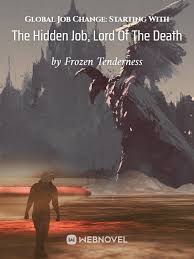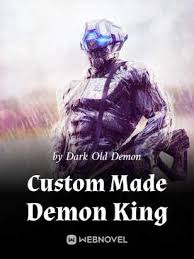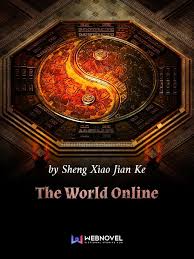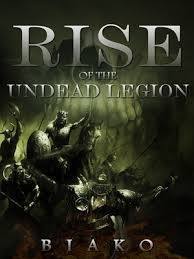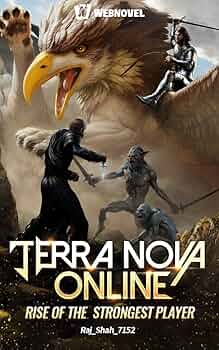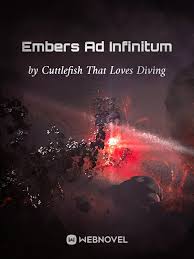The Story in 3 Sentences
Lu Yan awakens to the universally mocked Necromancer job, branded as the weakest and most fragile class in a world besieged by demons.
Through a hidden system, he transcends his fate, evolving into the terrifying Lord of the Death, commanding legions of the undead and wielding power that shatters mountains.
He silences his doubters not with words, but by carving a path of absolute dominance through the demonic hordes and the rigid human hierarchy, proving that true power rewrites destiny.
Why It Stands Out
1. The Ultimate Underdog Power Fantasy
It takes the classic “weakest class” trope and injects it with pure, unadulterated adrenaline. The transformation from a skeleton-summoning liability to a god of death who cleaves mythical beasts in half is executed with such over-the-top spectacle that it becomes irresistibly satisfying. It’s not subtle, but it doesn’t need to be; it’s about the visceral thrill of watching the underestimated become the unstoppable.
2. A System That Actually Feels Like a Game
The “Job Supporting System” isn’t just a plot device; it turns the protagonist’s journey into a tangible RPG experience. The focus on stat allocation, skill evolution, and strategic army-building gives readers a clear, almost mechanical understanding of his growth. It appeals directly to fans who love optimizing builds and seeing numerical power translate into world-shattering results.
3. Unapologetic, High-Octane Escapism
This novel knows exactly what it is: a rollercoaster ride of power escalation and cathartic victories. It leans hard into its genre, delivering constant action, overwhelming odds, and an MC who bulldozes through them. It’s the literary equivalent of a blockbuster action movie, prioritizing exhilarating momentum over deep introspection, making it a perfect binge for readers seeking pure, uncomplicated fun.
Characters That Leave a Mark
There’s Elis – the formidable principal of Jinling University, a figure of authority who navigates the complex politics of the new world while observing Lu Yan’s meteoric, disruptive rise with a mixture of professional interest and wary respect.
You’ll meet Avril Lavigne, who is the Elemental Elf Princess, a figure of ethereal beauty and royal burden, whose fate becomes unexpectedly intertwined with Lu Yan’s, adding layers of political intrigue and otherworldly stakes to his human-centric battles.
And the Elemental Elf Queen? They’re the one who commands an entire magical race, a powerful monarch whose initial aloofness gives way to strategic maneuvering, using her daughter’s predicament as a lever to bind the terrifying Lord of the Death to her court’s interests.
The Flaws Fans Debate
The protagonist’s decision to engage in melee combat feels fundamentally at odds with his necromancer identity, wasting the potential of his vast undead army and turning him into a generic overpowered fighter.
The author is frequently accused of narrative inconsistency, forgetting previously established skills or character stats, which breaks immersion and frustrates readers who pay close attention to the system’s rules.
The quality of the English translation is inconsistent, with noticeable drops in coherence and flow beyond the initial chapters, making the reading experience jarring and sometimes difficult to follow.
Must-Experience Arcs
Ch. 1–20: The Awakening of Ashes – Lu Yan endures public ridicule for his Necromancer job, discovers his hidden system, and undergoes his first terrifying evolution into the Lord of the Death, culminating in a brutal, awe-inspiring display of power that silences his early detractors.
Ch. 50–200: The Academy of Bones – Lu Yan enters Jinling University, where academic rivalries escalate into deadly arena battles. He faces off against elite students and cunning faculty, using his growing army and evolving skills to dominate tournaments and expose the hypocrisy of the established order.
Ch. 400–547: The March of the Undying Legions – The stakes shift from personal glory to global survival. Lu Yan leads his colossal death army against apocalyptic demonic incursions and confronts the highest echelons of human and elven power, his scythe becoming the final arbiter in a world teetering on the brink of annihilation.
Killer Quotes
“Summon a few skeletons? What does that have to do with me, the Lord of the Death?”
“Your all-around king is here!… Your king is now fertilizer for my legions.”
“The grave is not an end. It is my kingdom, and I am its sovereign.”
Cultural Impact
It has carved out a dedicated niche among fans of the “overpowered necromancer” subgenre, often mentioned in the same breath as other system-driven power fantasies.
Readers frequently meme the jarring transition from “fragile skeleton mage” to “melee death god,” highlighting the novel’s commitment to its own unique, if sometimes illogical, brand of power escalation.
Despite its flaws, its sheer scale and relentless pace have earned it millions of views, turning it into a notable, if polarizing, fixture in the landscape of translated web novels.
Final Verdict
Start Here If You Want:
A cathartic, no-holds-barred power trip where the underdog doesn’t just win, but obliterates the competition.
Fast-paced, action-heavy storytelling that prioritizes spectacle and momentum over complex plotting.
The satisfying crunch of a game-like progression system where every level-up and new skill feels like a tangible step towards godhood.
Study If You Love:
Deconstructing the tropes of the xianxia and LitRPG genres, seeing how they are amplified to their most extreme, entertaining conclusions.
Analyzing the cultural appeal of the “hidden job” and “system” mechanics as modern power fantasies.
Exploring how world-building in web novels often serves as a backdrop for character power escalation rather than a detailed, self-contained universe.
Avoid If You Prefer:
Deep, nuanced character development and intricate, tightly-plotted narratives.
Stories where power progression is slow, earned, and fraught with genuine peril and consequence.
Novels that strictly adhere to internal logic and avoid genre-bending choices like a necromancer who prefers punching to commanding.
